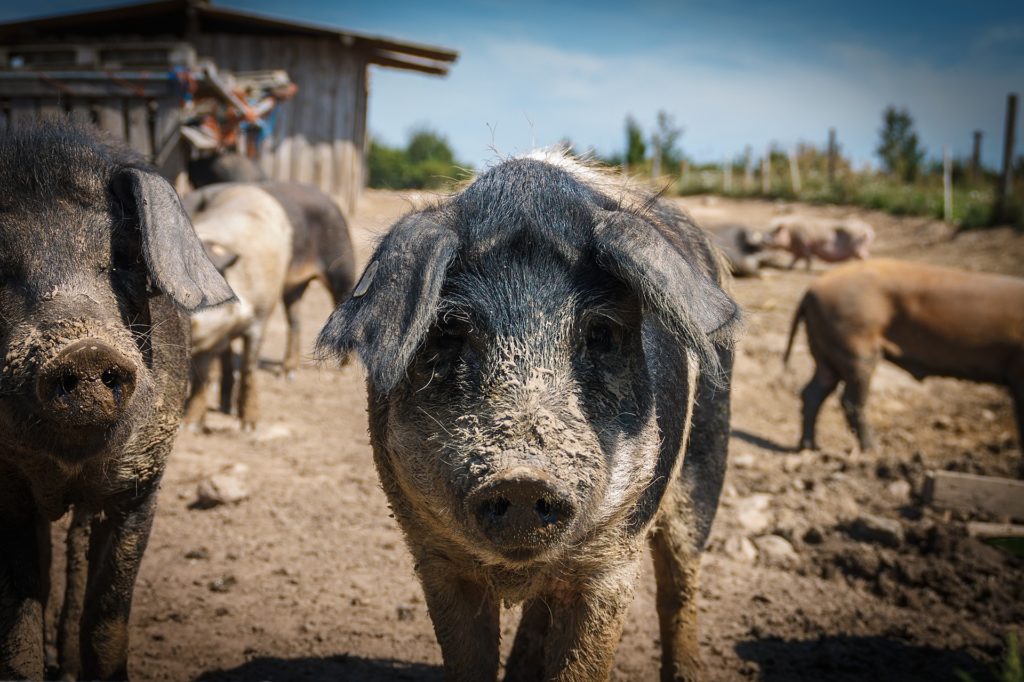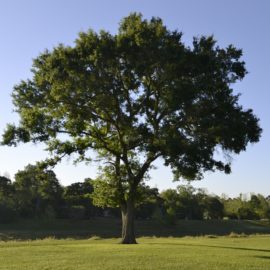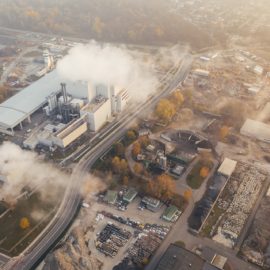
Life was supposed to be good. But…
When Andy Aucoin bought two acres of property on Bayou Teche in western St. Mary Parish in 1996, he envisioned backyard crawfish boils, an outdoor kitchen and a swimming pool where he could entertain friends and relatives under the shade of live oak trees. But 25 years later, there are no pool parties, no barbecues, no crawfish boils. Aucoin even gave away his patio furniture because the stench and flies from his neighbor’s pigs, as many as 50 at a time, sometimes make it unbearable to be outdoors. “We can’t do anything at home,” Aucoin said. He has collected bags of flies from under his carport. They land on his cars, doorknobs, in drinks. “We can’t even boil crawfish. It stinks and I’m worried about catching a disease.” Aucoin said he has had to wear a raincoat to bring his garbage to the curb so he isn’t sprinkled with untreated pig urine. His neighbor, Jared Landry, under a Louisiana Department of Agriculture Best Management Practices program, sprays pig waste on his own front lawn, a process often used by large commercial hog farms to dispose of animal waste on crop land.
the advocate
Landry built the first of three pig barns in 2005, partly in wet lands and with no permits although he discharges pig urine, feces and bedding material into the waterway. Three years later he built a second on the border of the land with Aucoin, slopping down into the wet lands. He now has three, all polluting the bayou. Pre-Covid 19 Aucoin collected signatures and attended meetings about this problem.
Laddy Butler, who lives about six blocks away in Sorrel, said her neighborhood had a fly infestation last year that chased she and her neighbors indoors. She’s also worried about the health effects from the flies and possibly contaminated drinking water. “It’s disgusting,” she said. “I see what Andrew is going through. This is outrageous and nobody should have to live like that.”
Bayou Teche provided drinking water for communities down stream from the pig barns.
The city of Franklin and the community of Charenton both have drinking water intakes on Bayou Teche downstream from Landry’s pig barns, according to Wilma Subra, an environmental chemist in Jeanerette who is known for helping residents take on polluters. The section of Bayou Teche where Aucoin and Landry live “is listed as impaired due to high fecal coliform pathogens,” a federal Environmental Protection Agency official wrote in a July 2018 email to a Corps official. Coliform is a bacteria found in the intestines of warm-blooded animals, including people and pigs. Its presence may indicate the presence of other pathogens in water. A DEQ spokesman said discharges from individual home sewage treatment systems is the probable source of the poor water quality in Bayou Teche. But the presence of coliform, Subra said, isn’t the only concern. People who raise show pigs inject them with a host of chemicals that are shed through urine and feces. Water plants may not treat drinking water to eliminate those chemicals, such as growth promoters and antibiotics. But the presence of coliform, Subra said, isn’t the only concern. People who raise show pigs inject them with a host of chemicals that are shed through urine and feces. Water plants may not treat drinking water to eliminate those chemicals, such as growth promoters and antibiotics.
Watch what the Pig Barns are like.
Aucoin has photos of Landry spraying pig urine which is banned by the Department of Agriculture Best Management Practices plan because the runoff can go into the bayou.
“It was peaceful, quiet, pleasant,” Aucoin said of the early years on his property, which slopes down to Bayou Teche and is shaded by oak trees. Aucoin and his wife, Peggy, enjoyed their property for eight or so years, building a brick home in which to raise their children, until Landry and his wife, Allison, bought the house next door and, in 2005, erected a pig barn on the far side of his land from Aucoin’s, just yards from the bayou. The barn was to be used for pigs his daughters raised to compete in 4H and other agriculture shows, but Landry said in a deposition he houses pigs for other 4-H students, too. They also sometimes sell the pigs for hundreds, even thousands of dollars, using the money to send their daughters to college. The first line of defense for Aucoin when he suspected Landry of violating health and environmental regulations should have been the St. Mary Parish government. St. Mary Parish implemented zoning Jan. 1, 2003, before Landry moved next to Aucoin, Tammy Luke, St. Mary Parish director of zoning, said. Under the mixed residential use zone, she said, Landry wasn’t required to obtain a building permit before erecting the barns and was allowed to raise pigs.
In 2014 the Parish re-zoned the properties as Existing Neighborhood 1, one of the strictest zoning. The pig barns were grandfathered.
Aucoin in August of 2016 reported smell, flies and pig waste washing onto his property to the Louisiana Department of Environmental Quality. DEQ inspectors found one of Landry’s pig barns, the first one built less than 20 yards from the bayou, was flooded because heavy rainfall had made the bayou rise. A second barn holding 22 pigs was being cleaned, the dirty water discharged directly into Bayou Teche, the inspection report shows. They visited the property again in November 2016, finding 20-30 pigs in each barn with water contaminated with pig feces and urine being discharged directly into the bayou. They found an additional problem: A pile of pig pen bedding and other debris 20-30 feet wide and six feet tall on the edge of the bayou and falling into the waterway. A report said Landry was in violation of at least two state environmental laws and could face fines. Instead of shutting down the operation or requiring a water discharge permit, LDEQ officials asked the Louisiana Department of Agriculture and Forestry to assist Landry with a Best Management Practices plan, which is standard procedure, Joey Breaux, LDAF assistant commissioner of soil and water, said. The BMP “program allows for less regulatory oversight from the Louisiana Department of Environmental Quality of organic solid waste materials determined to pose no risk or minimal risk to human health and the environment if managed properly,” according to department documents.
Landry was allowed to spray pig urine, a controversial plan. Industrial pig farms in North Carolina have been fined for the same practice.
Steve Wing, an epidemiologist who died before one of the hog farm trials, testified via videotape that people living near hog farms, which produce much greater quantities of urine and feces than Landry’s small operation, suffered asthma, high blood pressure, headaches, nausea and coughing more often than other people. Possible human health effects from Landry’s BMP plan operations, Breaux said, do not fall under the LDAF’s purview. Feces and bedding from the barns are put into a large metal container, uncovered and unlined, elsewhere on the property and occasionally hauled away, according to Landry’s BMP plan. In April 2017, a DEQ inspector said the BMP plan resolved the problem of waste directly entering the bayou, but noted that the potential still existed for leaks and overflows at the barns.
Landry was not fined at any time during the years this problem has been going on.
The department does not issue fines in all cases, Gregory Langley, press secretary, said. “The Department’s primary goal is compliance,” Langley said in an email. Landry didn’t have a history of previous complaints, “worked expeditiously,” he said, to comply after the initial August 2016 investigation and worked with the LDAF to implement the Best Management Practices plan. The LDAF is confident, Breaux said, that if Landry is complying with conditions of the BMP, no waste is entering Bayou Teche from Landry’s pig barns. But no one from LDAF has inspected the operation since March of 2017, he said, adding they would only inspect when investigating complaints or if the BMP is revised.
Aucoin has not filed with the LDAF as he does not trust them, no surprise, but has filed with the DEQ who too days to respond and found no problems with Landry’s operations.
More than a year after Aucoin first reported the pig barns to the LDEQ in August of 2016, the Louisiana Department of Natural Resources and the U.S. Army Corps of Engineers got involved, providing two opportunities to shut Landry’s pig operation down by requiring after-the-fact permits. In January of 2018, the DNR’s Office of Coastal Management advised Landry he had to immediately apply for an after-the-fact coastal use permit for the first pig barn built nearest the bayou. At the same time, the Corps and LDEQ began the process of issuing an after-the-fact permit for the barn and the sewer treatment system Landry installed.
The Corps and the LDNR have oversight of the wet lands and it appeared Landry would have problems based on the location of the barns.
Darrell Barbara, chief of the western evaluation section of the Corps, noted in July of 2018, “There is a lot of concern on permitting this existing after-the-fact pen.” Other agencies, locals and non-governmental organizations, he wrote, “have expressed great concern.” “We expect to drive hard on removal of this pen on the waterway and push for the non-wetland alternative, if it can be deemed practical,” Barbara wrote. “Not only just for avoiding direct impacts to aquatic resources along the riparian zone but also to avoid potential and likely indirect impacts to water quality in the area. If DNR is at a point of mitigation and permit issuing then understood. However, we just want you all to be aware of our ongoing and expected substantial review of this.” The Corps’ role in relation to the federal Clean Water Act only involves placement of fill in wetlands and waters, Ricky Boyett, chief, public affairs with the Corps in New Orleans, said. The LDEQ oversees air and water quality, he said.
Landry had to get a state LDEQ Water Quality Certification before getting his permit and paid a $50 fine for unauthorized activities. That is it.
The LDNR’s Courreges said the agency is not focused on punishing offenders. “We want the acres back,” he said. he LDNR issued Landry an after-the-fact permit in February 2019. In March 2019, Barbara signed off on the Corps after-the-fact permit, allowing Landry to keep the first barn and sewer system on the banks of Bayou Teche after he purchased 0.1 acre of mitigation credits from the Cypremort Teche Mitigation Bank to compensate for 0.04 acres of bottomland hardwood habitat lost when he built the first pig barn. The Corps, Boyette wrote, does not assess fines, although it can raise the issue with the U.S. Environmental Protection Agency, which has oversight of the Clean Water Act. The EPA, he said, did not object to approval of the after-the-fact-permit and did not assess a fine.
Aucoin says politics was at play.
Representatives of those agencies said they followed proper procedures in reviewing and approving the pig barns. “No one has coerced me or forced me to say or do anything,” Luke, the St. Mary Parish planning and zoning director, said. “I don’t care who you are, the rules are the rules.” A Jan. 10, 2018, email from a LDNR employee to a LDEQ employee lends some credence to Aucoin’s claim. “Please note that Mr. Landry is ‘connected’ from what I am told,” Heather Evans with LDNR’s Office of Coastal Management wrote. Courreges, the LDNR spokesman, said it was Evans’ way “of letting folks in DEQ know this person is going to be a name dropper. ‘You know who I am.’ Makes no difference.” Aucoin said he will continue to look for ways to curtail his neighbor’s practices. “My friends don’t come here anymore. I could not do anything for my child’s graduation,” Aucoin said. “I’m stuck. I can’t sell the place.”
With my wife, we would have moved.



